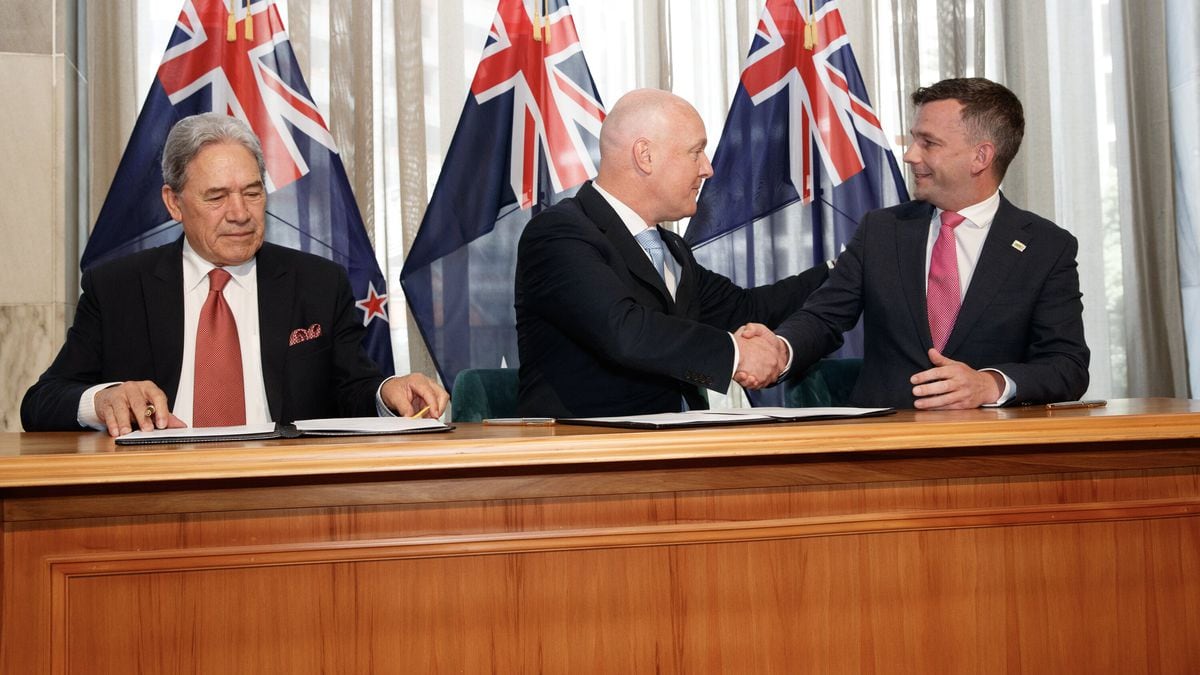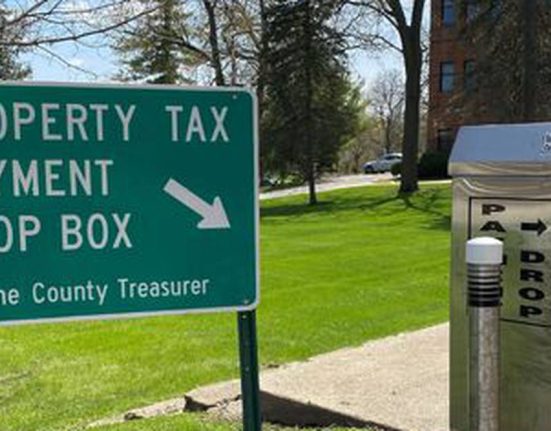The Government has decided not to give residential property investors as much tax relief as National promised Act in the parties’ coalition agreement.
Rather than start phasing out the interest limitation rule in the current tax year, as stated in the agreement, it will start being phased out in the year to March 31, 2025.
The interest limitation rule prevents residential property investors from writing off mortgage interest as an expense when paying tax. Exclusions apply, including for new builds.
Under the existing law, introduced by the former Labour Government when the property market was overheating, no interest can be deducted for property bought from March 27, 2021.
For property bought before then, 50 per cent interest can be deducted in the current tax year, which winds up at the end of this month.
National and Act had agreed to allow investors to deduct 60 per cent of their interest in the current tax year.
Making this change would have been unorthodox, as it would have had a retrospective effect (applied to the past). Some investors would have received tax refunds.
It also would have meant the Government would not have received as much revenue as it was banking on getting.
This might have been particularly problematic in the current environment, with the sluggish economy seeing the Government collect less tax than forecast by Treasury. Indeed, Finance Minister Nicola Willis is already walking back from National’s pre-election commitment to return the books to surplus by 2026-27.
So the Government has decided to keep the rules as they are for the current tax year, then allow investors to write off 80 per cent of their mortgage interest in the year to March 2025, and all their interest in the year to March 2026.
Act leader and Associate Finance Minister David Seymour didn’t dwell on the fact he lost his battle with National on the matter, noting it was easier to avoid making a retrospective change. He didn’t mention what National might have given him to agree to deviate from the coalition agreement.
Rather, he focused on the positives for both investors and renters.
“Landlords have been hit with a double whammy of rising mortgage interest rates and increasing interest deductibility limitations during a cost-of-living crisis. These costs are inevitably passed on to tenants, one of the reasons New Zealand has all-time high rental costs,” Seymour said.
“Removing the ability for landlords to claim interest expenses made residential properties less attractive and reduced the pool of properties for tenants to choose from.”
An argument Labour made when it introduced the interest limitation rule was that it put investors on the same footing as owner-occupiers, who can’t deduct their mortgage interest as expenses to reduce their tax bills.
Investors hit back, saying that interest can normally be expensed in business, so preventing this in regard to a certain type of investment created inconsistency in the tax system.
Nonetheless, Labour’s finance spokesperson Barbara Edmonds accused the Government of abandoning first-home buyers, struggling to get ahead.
“The ripples of this decision will be felt for generations,” she said.
“Landlords will become tax cut millionaires, once again showing the Coalition Government’s priorities are a disgrace.”
Edmonds said the decision showed the priorities were “not lunches in schools, the smokefree generation or continuing the Cook Strait ferries” but “it’s mega landlords”.
“The assertion that this will bring the cost of rent down is a wolf in sheep’s clothing, there is nothing in today’s announcement that guarantees tenants will have savings passed on to them as a result,” Edmonds said.
“This tax advantage for the wealthy is not only set to be unfair for tenants, it shuts first home buyers out from getting a foot on the property ladder. Parents and grandparents who hope for their children to own their own home will realise it is a more difficult path to homeownership than ever before.”
The interest limitation rule change will be added to the Taxation (Annual Rates for 2023–24, Multinational Tax and Remedial Matters) Bill, which is currently before a select committee and is due to be passed before the end of the month.
Act had campaigned before the election on removing the interest limitation rule in one go, rather than phasing it out.
If it had its way, it would also have scrapped the bright-line test (a de facto capital gains tax on investment property), which will be reduced from 10 to two years from July 1.
“To overcome New Zealand’s many challenges there needs to be an environment where investment and development is encouraged. This [interest limitation rule] change is a step in the right direction,” Seymour said.
Jenée Tibshraeny is the Herald’s Wellington Business Editor, based in the Parliamentary press gallery. She specialises in government and Reserve Bank policymaking, economics and banking.







